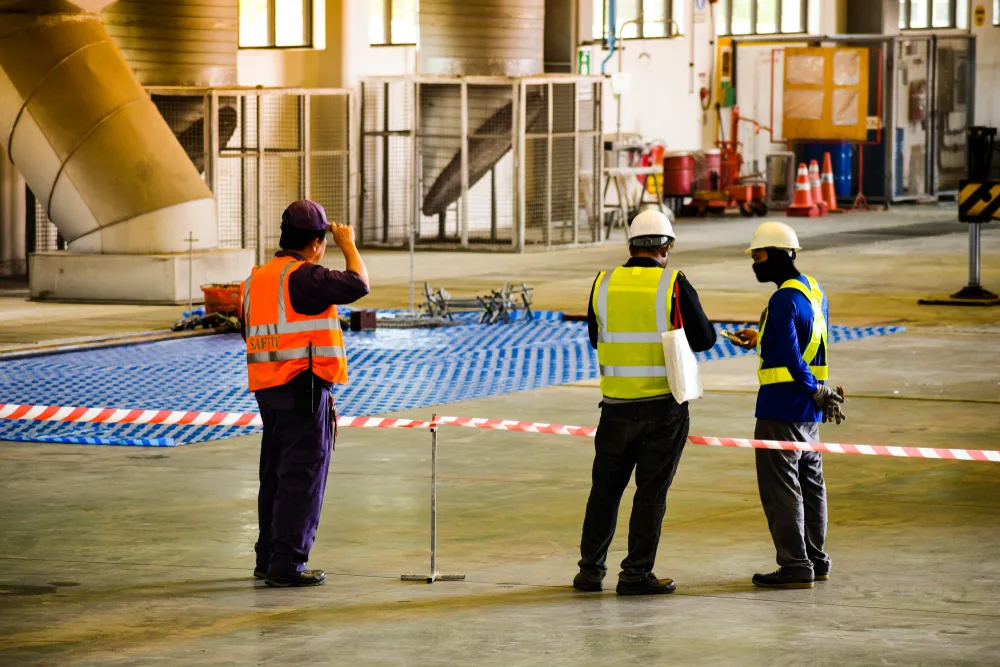The Basic Principles Of Roar Solutions
The Basic Principles Of Roar Solutions
Blog Article
The Only Guide for Roar Solutions
Table of ContentsThe Best Strategy To Use For Roar SolutionsA Biased View of Roar SolutionsThe 9-Second Trick For Roar Solutions
In such an environment a fire or explosion is possible when 3 standard conditions are met. This is commonly referred to as the "hazardous area" or "combustion" triangular. In order to secure setups from a prospective explosion a technique of analysing and categorizing a potentially unsafe area is required. The purpose of this is to guarantee the proper choice and setup of equipment to inevitably avoid a surge and to guarantee safety of life.
(https://www.artstation.com/roarsolutions6/profile)
No tools must be set up where the surface area temperature of the tools is higher than the ignition temperature level of the offered risk. Below are some typical dust dangerous and their minimum ignition temperature. Coal Dust 380C 225C Polythene 420C (melts) Methyl Cellulose 420C 320C Starch 460C 435C Flour 490C 340C Sugar 490C 460C Grain Dirt 510C 300C Phenolic Resin 530C > 450C Aluminium 590C > 450C PVC 700C > 450C Soot 810C 570C The chance of the hazard being present in a concentration high adequate to create an ignition will certainly differ from location to place.
Dangerous location electric devices possibly made for use in higher ambient temperature levels. Field Repair Service By Authorised Worker: Challenging screening might not be needed nevertheless particular procedures may require to be complied with in order for the devices to preserve its third party ranking. Each item of equipment with a harmful ranking must be assessed individually.
Indicators on Roar Solutions You Should Know
The equipment register is a detailed database of devices records that consists of a minimum collection of fields to identify each link item's area, technological specifications, Ex lover classification, age, and ecological data. The proportion of Comprehensive to Shut examinations will certainly be determined by the Tools Threat, which is examined based on ignition risk (the possibility of a resource of ignition versus the likelihood of a flammable ambience )and the dangerous area category
( Zone 0, 1, or 2). Executing a robust Risk-Based Evaluation( RBI )approach is crucial for ensuring conformity and safety in managing Electric Devices in Hazardous Locations( EEHA).
The 9-Minute Rule for Roar Solutions

In regards to eruptive threat, a hazardous location is a setting in which an explosive atmosphere is present (or may be anticipated to be present) in quantities that call for special precautions for the building, installation and use devices. Roar Solutions. In this article we discover the difficulties encountered in the work environment, the risk control actions, and the needed competencies to function securely
These compounds can, in certain problems, create eruptive environments and these can have major and tragic repercussions. Most of us are acquainted with the fire triangular get rid of any type of one of the 3 components and the fire can not take place, yet what does this mean in the context of dangerous locations?
In the majority of circumstances, we can do little about the degrees of oxygen in the air, but we can have substantial influence on resources of ignition, for instance electrical tools. Hazardous areas are documented on the dangerous area classification drawing and are identified on-site by the triangular "EX" indicator. Below, amongst other essential information, areas are divided into 3 kinds depending on the hazard, the likelihood and duration that an explosive environment will exist; Zone 0 or 20 is considered the most dangerous and Zone 2 or 22 is regarded the least.
Report this page